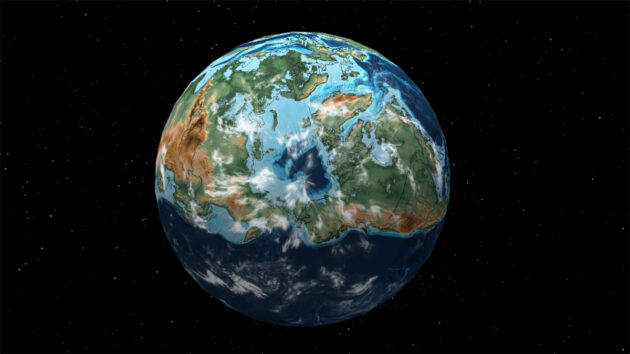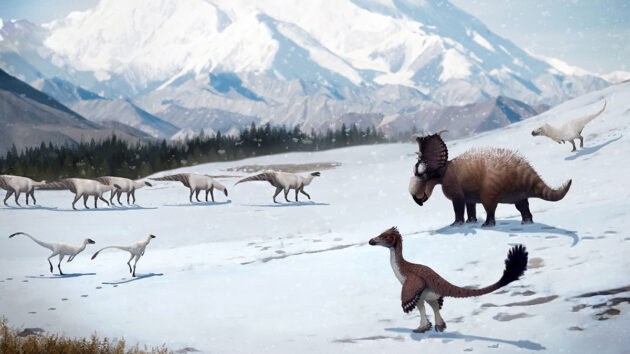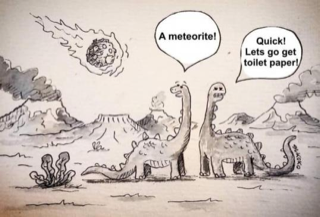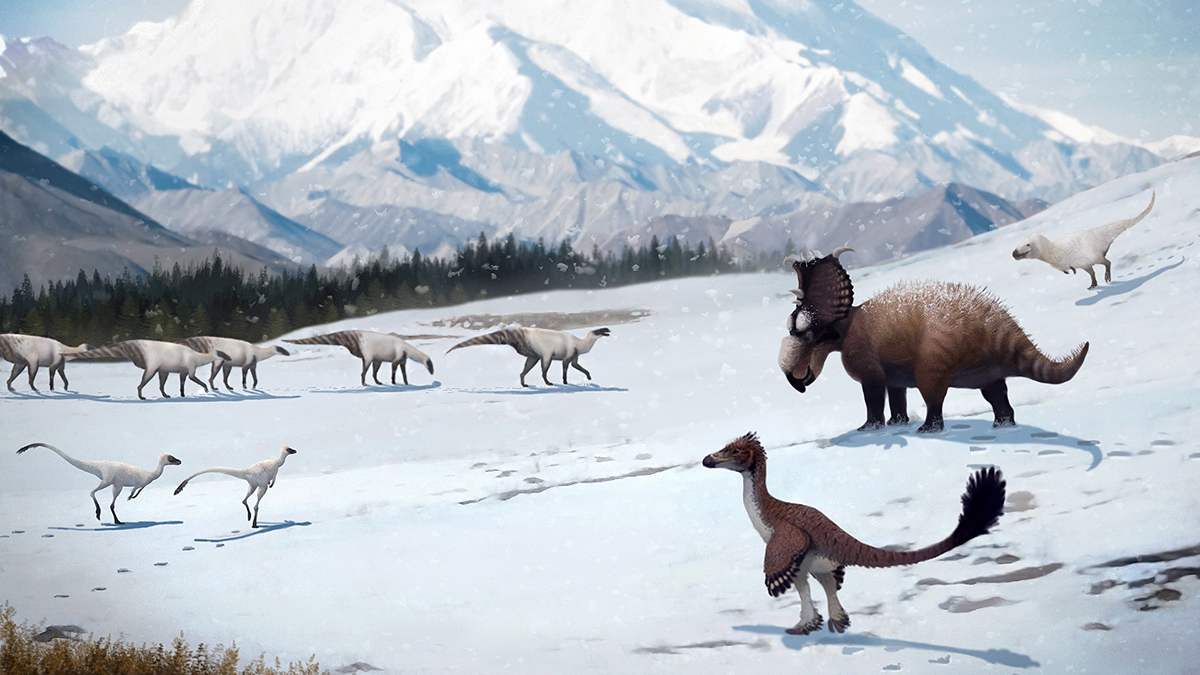Science is never “settled”. No matter how certain something might seem, its certainty is merely provisional. Whether it’s that everything in physics has already been discovered (as Lord Kelvin is apocryphally, but falsely, said to have proclaimed) or that a meteor impact wiped out the dinosaurs.
However likely the latter seems, there remain niggling counter-factuals: not least, the existence of Arctic dinosaurs.
It had long stretches of winter darkness, freezing temperatures and often scarce resources, but an array of tiny fossils suggests dinosaurs not only roamed the Arctic, but hatched and raised their young there too.
The Arctic 70 million years ago was still mostly sea, but that sea was much smaller than today: practically a lake encircled by Eurasia and North America. The Bering land bridge was still connected, and Scandinavia and Greenland were separated by a strait roughly the size of today’s Mediterranean. So there was plenty of land within the Arctic circle — and dinosaurs roamed it, all year round.

Experts say hundreds of fossils from very young dinosaurs recovered from northern Alaska indicates the creatures reproduced in the region, suggesting it was their permanent home.
Prof Gregory Erickson, a palaeobiologist at Florida State University and a co-author of the research, said the discovery was akin to a prehistoric maternity ward, adding it was very rare to find remains of such young dinosaurs because they are so small and delicate […] the new research has revealed the discovery of tiny teeth and bones from young dinosaurs, including those who were just about to hatch or had recently done so.
The fossils, dating to around 70m years ago, came from large and small-bodied dinosaurs covering at least seven different types – including duck-billed and horned dinosaurs. Teeth were also found from a young tyrannosaur, said Erickson, possibly just six months old.
Although the Arctic then was not nearly so harsh as today, thanks to a warmer, more benign climate, winters were still forbidding.
The region would have lacked big polar ice caps and had conifer forests, but the researchers say the creatures still faced harsh conditions, with up to 120 days of continuous darkness in the winter and an average annual temperature of just above 6C.
The team wrote that “the dinosaurs, if winter residents, endured freezing winter conditions with occasional snowfall”.
Erickson said the study raised questions of how the dinosaurs coped in the winter, with the team suggesting smaller dinosaurs may have hibernated, potentially in burrows, while larger herbivorous dinosaurs may have fasted – although plants such as bark, ferns and moss may have provided some food […]

Dr Stephen Brusatte, a palaeontologist at the University of Edinburgh, adds that:
“These dinosaurs – big ones, small ones, meat-eaters, plant-eaters – must have formed entire communities that adapted to endure the challenges of extreme winter survival.”
The Guardian
Which is what raises niggling doubts about the asteroid-impact hypothesis.
Certainly, the impact itself devastated most of the North America continent, but to wipe out dinosaurs globally, the hypothesis relies on the idea that subsequent years of “nuclear winter”. Global temperatures would have likely dropped by about 7°C. But, as we see, there were species of dinosaurs well adapted to just those kind of winter conditions, in the Antarctic as well as the Arctic. It seems surely possible that such dinosaurs could have migrated over what were then still supercontinental landmasses to where conditions were more as they were used to.

At the same time, the post-impact winter is speculated to have lasted decades, perhaps challenging even those dinosaurs’ cold-climate adaptations.
One thing is certain, though: science is never settled, and every new discovery has the potential to falsify even our most certainly-held notions.
Please share this article so that others can discover The BFD

